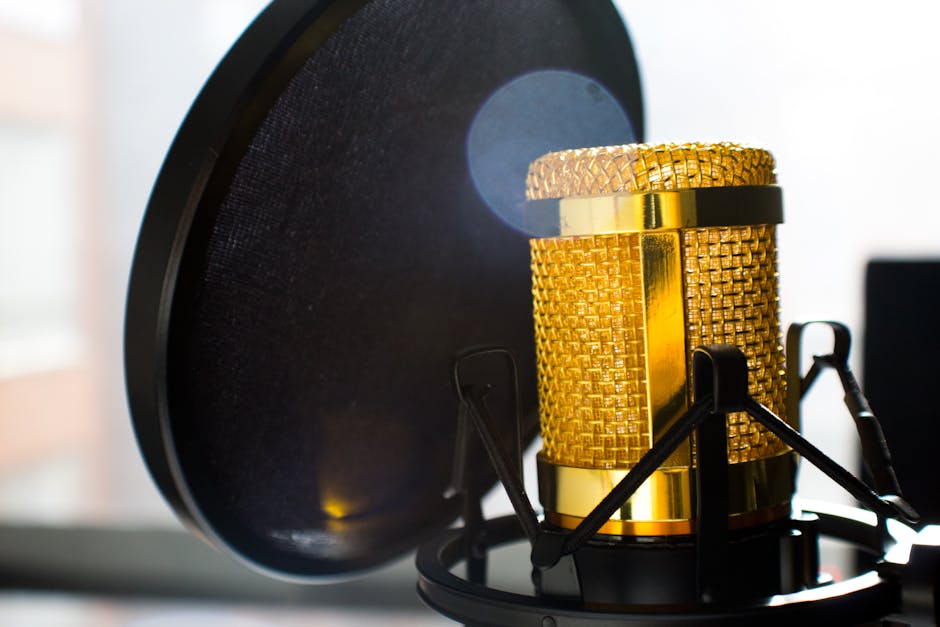How I Decide Which New Podcasts to Subscribe To (my Criteria).
How I Decide Which New Podcasts to Subscribe To (my Criteria)
In the vast, ever-expanding universe of audio content, discovering a truly exceptional podcast can feel like finding a needle in a haystac—a very, very large haystac. With millions of shows available and thousands more launching every month, the sheer volume can be overwhelming. My podcast queue used to be a chaotic mess of half-listened-to series and forgotten subscriptions. I found myself spending more time scrolling and sampling than actually enjoying. That’s when I realized I needed a system, a set of personal criteria to cut through the noise and curate a listening experience that genuinely enriches my days.
This isn’t just about finding *any* new podcast; it’s about finding the *right* new podcasts—those that resonate deeply, offer genuine value, and warrant a permanent spot in my precious listening time. Over the years, I’ve refined my process, turning what used to be a hit-or-miss endeavor into a much more intentional and rewarding journey. Here’s a detailed look at how I decide which new podcasts earn a coveted subscription in my feed.
Beyond the Blurb: My Initial Vetting Process for Potential Gems
Before a podcast even gets a chance at an “audition,” it has to pass my initial vetting. This phase is all about quickly identifying shows that align with my interests and quality expectations, preventing me from wasting time on a full listen if it’s clearly not a fit. It’s like speed dating for podcasts.
The Allure of the Title and Description
It sounds obvious, but a podcast’s title is its first handshake. Is it intriguing? Does it clearly convey the topic, or is it cleverly mysterious? I look for titles that are either very direct (e.g., “The Daily,” “Stuff You Should Know”) or those that pique my curiosity without being vague to the point of frustration. The description is even more critical. I scan for:
- Clear Premise: Does it tell me what the show is about, who it’s for, and what I can expect to learn or experience?
- Unique Angle: In a world flooded with content, what makes this show different? Is it exploring a niche topic, offering a fresh perspective on a familiar one, or presenting information in a novel format?
- Keywords and Themes: I look for specific topics, historical periods, scientific fields, storytelling styles, or types of interviews that genuinely interest me.
- Host Information: Sometimes, knowing who the host is (especially if they’re an expert or a personality I already know) can be a significant draw.
Checking the Reviews and Ratings (with a Grain of Salt)
While I don’t let reviews dictate my entire decision, they offer valuable social proof. I typically glance at the overall star rating and skim a few recent reviews, looking for common themes. Are people praising the host’s insight, the production quality, or the depth of research? Or are there recurring complaints about audio issues, rambling content, or inconsistent release schedules? I pay particular attention to reviews that mention specific episodes or content I might be interested in. However, I always take them with a grain of salt, knowing that individual preferences vary wildly.
Scanning the Episode List and Release Schedule
A quick scroll through the existing episode list tells me a lot. Are there enough episodes to dive into, or is it a brand-new show with only a handful? I prefer shows with at least 5-10 episodes already out, giving me a better sense of consistency and depth. I also check the release schedule. Is it weekly, bi-weekly, or sporadic? A consistent schedule often indicates a more organized and committed production team, which usually translates to a better listening experience. If a show hasn’t released anything in months, it might be defunct, and subscribing would be pointless.

The Audition Phase: Diving Deep into Episode Zero and Early Content
If a podcast passes my initial vetting, it earns a spot in my “audition queue.” This is where I commit to listening to actual content, usually the trailer (if available), the first episode, and perhaps one or two more that catch my eye. This phase is crucial for evaluating the actual listening experience.
The Sonic Landscape: Production Quality and Audio Experience
This is non-negotiable for me. I’m a stickler for good audio. A podcast can have the most fascinating content in the world, but if the sound quality is poor, I simply can’t listen. I evaluate:
- Clarity and Consistency: Are the voices clear? Is there background noise? Does the audio level jump drastically between speakers or segments?
- Editing: Is it tightly edited, or does it drag with awkward pauses and filler words? Good editing respects the listener’s time.
- Sound Design: Does it use music, sound effects, or ambient noise effectively to enhance the story or discussion without being distracting?
- Microphone Quality: While I don’t expect studio-grade equipment for every indie podcast, basic clear audio is essential. Echoes, static, or muffled voices are instant deal-breakers.
I believe that understanding podcast production quality is key to appreciating a well-made show. It shows respect for the listener.
The Host’s Voice and Delivery: Connection and Engagement
The host is the guide, the storyteller, the interviewer. Their voice and delivery are paramount to my enjoyment. I assess:
- Clarity and Articulation: Can I easily understand what they’re saying?
- Pacing and Rhythm: Do they speak at a comfortable pace? Is there a natural flow to their speech, or does it feel rushed or monotonous?
- Personality and Authenticity: Do they sound genuinely interested in the topic? Do they bring warmth, humor, or gravitas that makes them engaging? I prefer hosts who sound like themselves, not like they’re reading from a script robotically.
- Interviewing Skills (if applicable): For interview-based shows, I look for hosts who listen actively, ask insightful follow-up questions, and don’t interrupt their guests excessively.
Content Depth and Storytelling Prowess
Beyond the surface topic, how is the content actually presented? Does it offer depth, or does it skim the surface? For narrative podcasts, is the storytelling compelling? For interview shows, are the conversations insightful? I want to feel like I’m learning something new, gaining a fresh perspective, or being genuinely entertained. I look for:
- Research and Accuracy: Especially for educational or journalistic podcasts, I want to trust the information being presented.
- Narrative Arc: For story-driven shows, is there a clear beginning, middle, and end? Does it build suspense or emotional resonance?
- Thought-Provoking Questions: Do they challenge my assumptions or introduce me to new ideas?
- Respect for the Listener’s Time: Is the content concise, or does it include excessive banter or irrelevant tangents?
Judging the Long Haul: What Keeps a Podcast in My Feed?
Getting past the audition phase is one thing; earning a permanent spot in my subscription list is another. This requires consistent quality and ongoing value. It’s about a show proving its worth over time.
Consistency in Quality and Schedule
A great pilot episode is fantastic, but can the show maintain that level of quality? I pay attention to whether the production value, host engagement, and content depth remain consistent across multiple episodes. A show that drops off in quality or becomes wildly inconsistent in its release schedule often gets the axe. My time is valuable, and I prefer shows that respect that by delivering reliably.
The Evolving Conversation: How Well Does It Grow?
Some podcasts are finite series, designed to be binged and then concluded. Others are ongoing conversations. For the latter, I look at how the show evolves. Does it stay fresh? Does it adapt to current events or new information within its niche? Does it introduce new segments, guest hosts, or themes to keep the content dynamic? Stagnation is a slow killer of my interest.
The ‘Spark’ Factor: When a Podcast Just Clicks
Beyond all the analytical criteria, there’s an intangible element: the “spark.” This is when a podcast just *clicks* with me on a deeper level. It might be the host’s unique sense of humor, a particular way they frame complex ideas




Post Comment